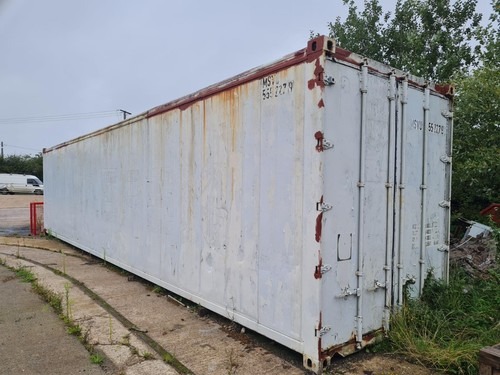Everything You Need to Know About 20ft Shipping Containers
Shipping containers have actually become a significant component of modern-day logistics, and the 20ft shipping container is one of the most popular sizes in the market. Whether you are considering purchasing one for storage, shipping, and even converting it into a distinct living space, comprehending the requirements, benefits, and uses of a 20ft shipping container can assist direct your decision.
Comprehending the Dimensions and Specifications
Requirement Dimensions
| Specification | Measurement |
|---|---|
| Outside Length | 20 ft (6.06 m) |
| Outside Width | 8 ft (2.44 m) |
| Outside Height | 8.5 ft (2.59 m) |
| Inside Length | 19.4 ft (5.9 m) |
| Inside Width | 7.7 ft (2.35 m) |
| Inside Height | 7.9 ft (2.39 m) |
| Tare Weight | 2,200 kg (4,850 lbs) |
| Payload Capacity | 28,000 kg (61,729 pounds) |
| Maximum Gross Weight | 30,480 kg (67,200 pounds) |
Container Types
While the basic 20ft container is typically used, different types are likewise available, each matched to particular needs.
- Requirement Dry Container: The fundamental model, utilized mostly for general cargo storage.
- High Cube Container: An additional foot taller than basic containers, permitting additional loading area.
- Refrigerated Container (Reefer): Designed for temperature-sensitive products.
- Open Top Container: Used for oversize cargo that can not fit through the doors.
- Flat Rack Container: Ideal for heavy loads and devices, providing a flat surface area.
Advantages of a 20ft Shipping Container
- Flexibility: 20ft shipping containers have different applications, from shipping items to on-site storage or perhaps recreational housing.
- Cost-efficient: Smaller than 40ft containers, they frequently come at a lower price, making them more accessible for small companies and individuals.
- Easier Transportation: Their size permits for simpler handling, transportation, and positioning without the requirement for specific devices.
- Sturdiness: Constructed from robust steel, shipping containers are created to stand up to extreme shipping conditions, making them long-lasting and reliable.
- Modularity: Can easily be stacked or linked to develop bigger structures or setups, appropriate for short-lived workplaces or storage yards.
Common Uses
- Storage Facilities: A popular choice amongst services for safe, weather-proof storage of tools and products.
- Pop-up Shops and Cafés: Entrepreneurs have creatively utilized containers to set up short-lived retail spaces.
- Homes and Cabins: The pattern of container homes has actually led many to convert 20ft containers into compact livable spaces.
- Vacation Rentals: Unique stays have actually emerged through shipping container conversions.
Factors to consider Before Purchase
| Aspects | Factors to consider |
|---|---|
| Condition | New, used, or reconditioned; assess for rust or damage. |
| Transportation | Understand transportation costs and logistics. |
| Allows | Examine regional zoning laws for shipping container use. |
| Insulation | Think about insulation for temperature-sensitive applications. |
| Flexibility | Choices for customizing the container for specific needs. |
Frequently Asked Questions (FAQ)
1. Just how much does a 20ft shipping container cost?
The average price for a 20ft shipping container varies from ₤ 1,500 to ₤ 3,500, depending upon its condition and adjustments. New containers cost more, while utilized and reconditioned alternatives can be less expensive.
2. Can 20 Foot Shipping Container Dimensions live in a shipping container?
Yes, many individuals reside in transformed shipping containers. They can be insulated and created to meet living standards; nevertheless, ensure compliance with regional building codes.
3. Are shipping containers waterproof?
Shipping containers are developed to be weather resistant, however over time, seals may break down, so routine upkeep is recommended.
4. How do I move a shipping container?
Moving containers needs specific devices, such as a flatbed truck or a container dolly. It is recommended to work with experts for safe transport.
5. Does a shipping container require a foundation?
While not always required, placing a container on a level foundation can assist prevent settling and improve stability.
6. What is the life expectancy of a shipping container?
With appropriate upkeep, a shipping container can last 25 years or more. Numerous elements, such as usage and ecological conditions, will impact its life-span.
A 20ft shipping container can be a flexible asset appropriate for numerous applications, from storage services to ingenious home. Its size, durability, and economical nature make it attracting both services and individual customers. By comprehending the specifications, advantages, and useful applications, possible purchasers can make educated decisions that finest match their needs. As the world moves towards more sustainable and effective solutions, shipping containers will likely stay a feature of contemporary living and logistics.

